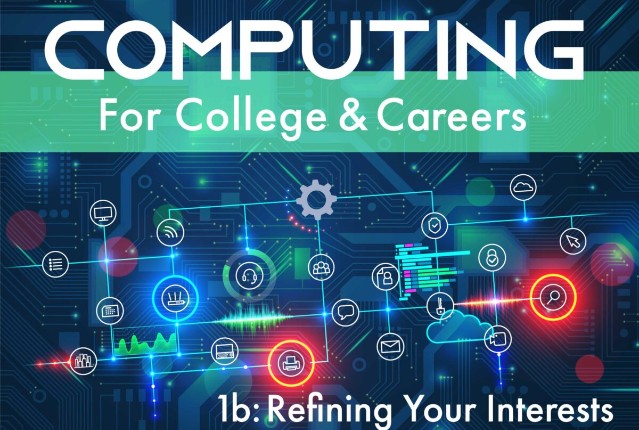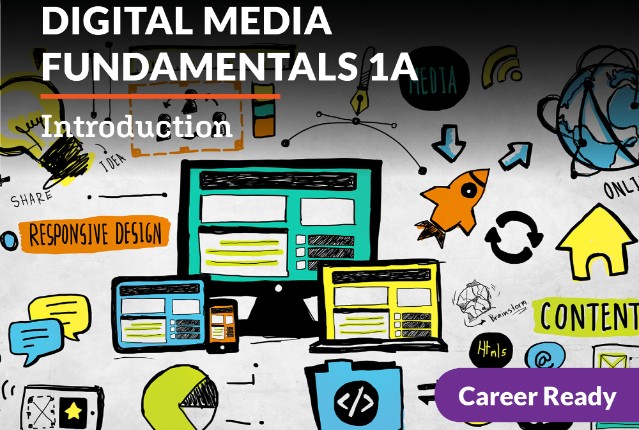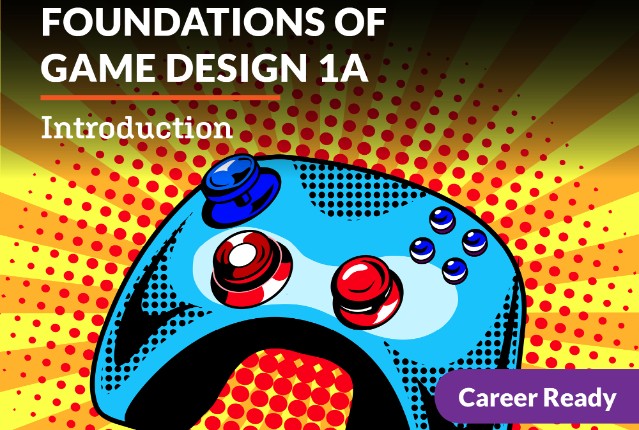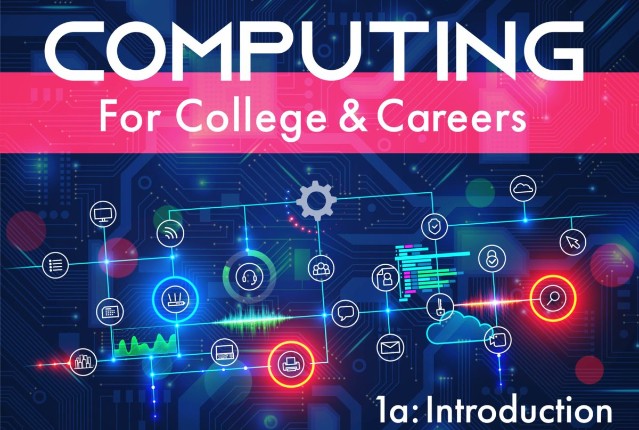
Computing for College and Careers 1b: Refining Your Interests
Technology has made an impact on nearly all facets of our lives, and it will continue to make an impact on yours as you make your way into college and career! In this course, you are going to pull back the veil on what goes into some of the technology we use every day. You will investigate computer hardware and software and learn what goes into building a computer while exploring programs and applications, you’ll study the history of the internet and how to use its capabilities even more effectively, and you’ll also dive deep into email and some of today’s most powerful processing tools. Get ready to really know the technology you have at your fingertips so you can continue to make it work for you!
Review course outlineAccess for a year
USD 299.00*
* Choose more courses to get a discount




